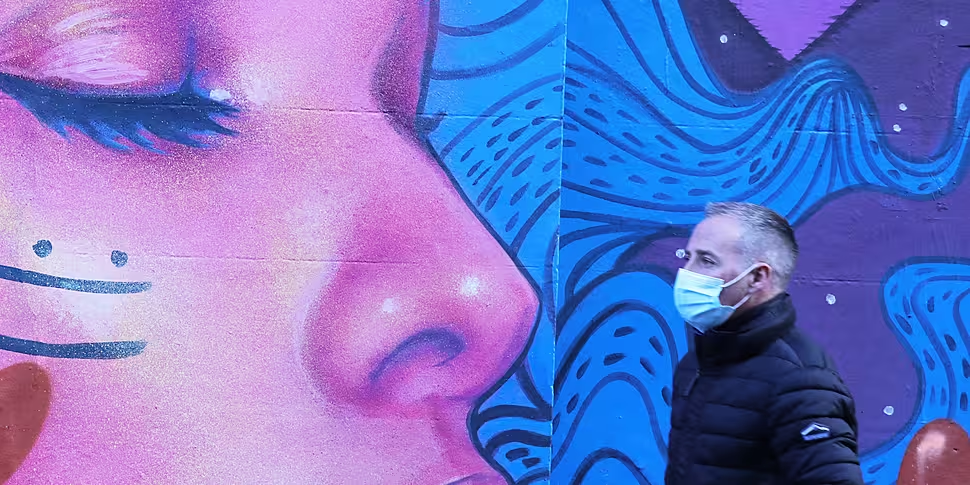Around 50% of people will continue to wear a face mask and maintain social distancing when the pandemic is over, according to a new Newstalk survey.
The survey of over 1,000 people has found that nearly three-quarters agree with the ending of almost all restrictions last weekend.
However, some 47.5% said they would continue to wear a face mask when it is no longer mandatory.
Meanwhile, 51% said they would be inclined to maintain a distance between themselves and others in the future.
Just short of 40% said they would be less inclined to hug or shake hands when the pandemic is over.
Hugs
ESRI Behavioural Scientist Pete Lunn said small social contacts like a hug or a handshake can make a real difference in forming relationships.
“To see so many people worried about that is quite interesting,” he said.
“Again, I suspect they are projecting a little more reluctance than will turn out to be the case, but it certainly looks like there will be a minority of people who will fight shy of physical contact with others for some time to come and that is likely to have quite an impact.”
The survey also suggests that many businesses may have been too quick to condemn cash to the history books – with 71% of people saying they would not be reluctant to handle cash moving forward.
Future
Just over half agreed that the pandemic has changed the way they will live their lives in the future - with respondents including a wide range of ways they expect things to be different.
“I’m nearly a recluse,” said one. “I won’t see my grandkids unless I’ve a negative antigen test done.”
“I’m afraid to use public transport, afraid to go into crowded shops and shopping centres – I’m just generally a nervous wreck.”
“I have been working from home for the majority of the pandemic, returning to the office at various points when restrictions eased,” said another. “I very much would like a hybrid working arrangement in the future, but I fear my public service employer will resist.”
Another warned that they will only accept working from home moving forward – and will move jobs if necessary to ensure they get the situation they need.
Mental health
One mother expressed real concern about the effect restrictions had on her children.
“It has destroyed my two teenage children who have not made any friends in secondary school due to the restrictions and are suffering from social anxiety,” she said.
One woman said people need to remember there are a lot of people out there who “need a bit of time readjust”.
“We have had fear drilled into us for two years, being asked to keep away from even loved ones etc. to protect them,” she said.
“It's hard, as much as I'm excited for things to get back to normal, I still have fear as COVID is still rampant.”
She said she is suffering from the effects of long COVID and is now going to CBT counselling for anxiety.
She criticised the Government over its failure to fund mental health services with so many people struggling due to the restrictions.
“They forgot about a duty of care afterwards for the many people who are still scared, most of whom are still working Frontline,” she said.
In all, 1,087 people from all across Ireland responded to the survey.
Additional reporting from Michael Staines









